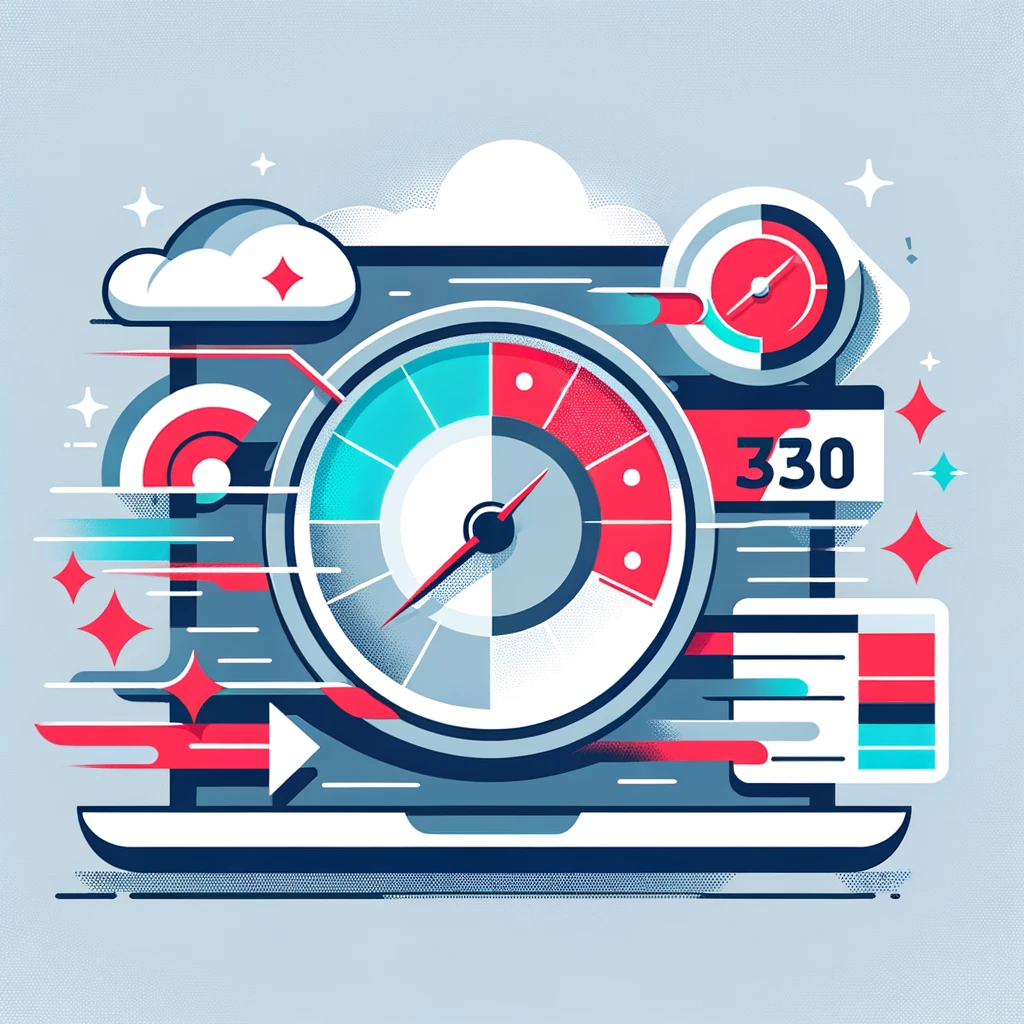Understanding Website Speed

Website speed, often referred to as page load time or site speed, is the time it takes for your website’s pages to fully load and display all their content in a web browser. It’s measured in seconds or milliseconds and has a profound impact on user experience and search engine ranking.
The Need for Speed: Why It Matters

- User Experience: Imagine walking into a store, and the door takes forever to open. You’d likely get frustrated and leave. The same applies to websites. Slow-loading pages irritate visitors, leading to higher bounce rates (people leaving your site) and lower engagement.
- First Impressions: Your website is often the first point of contact with potential customers. A slow site gives a poor first impression and can lead to lost opportunities. On the other hand, a fast-loading site conveys professionalism and reliability.
- Search Engine Ranking: Search engines like Google consider website speed when determining search rankings. Faster sites tend to rank higher in search results, potentially attracting more organic traffic.
- Mobile Friendliness: With the growing use of mobile devices, having a fast-loading mobile site is crucial. Slow mobile sites can result in frustrated users and missed opportunities.
- Conversion Rates: Speed directly impacts your website’s ability to convert visitors into customers or subscribers. Faster sites have lower bounce rates and higher conversion rates.
- Competitive Advantage: In a competitive online landscape, a faster website can give you an edge over rivals. Users are more likely to choose a fast-loading site over a slow one.
Factors Affecting Website Speed

Several factors influence your website’s speed:
- Web Hosting: The quality of your web hosting provider matters. A reliable and well-configured hosting service can significantly improve load times.
- Image Optimization: Large, unoptimized images can slow down your site. Use image compression and formats like WebP to reduce file sizes.
- Caching: Caching temporarily stores data to reduce server load and speed up page loading. Utilize browser caching and server-side caching for optimal results.
- Minimization: Minimize the use of unnecessary scripts, plugins, and external resources. Clean and efficient code is faster to load.
- Content Delivery Network (CDN): A CDN distributes your website’s content across multiple servers worldwide, reducing the physical distance between the server and the user, resulting in faster load times.
How to Improve Website Speed

Now that you understand the importance of website speed, here are some simple steps to boost it:
- Choose a Quality Hosting Provider: Opt for a reliable hosting service that offers good performance and support.
- Image Optimization: Compress and optimize images before uploading them to your site.
- Caching: Enable caching on your website to store frequently accessed data.
- Minimize HTTP Requests: Reduce the number of external requests (scripts, stylesheets) on your pages.
- Content Delivery Network (CDN): Implement a CDN to distribute content globally.
- Regular Maintenance: Keep your website and plugins updated, and regularly clean up unnecessary files and database entries.
Conclusion

Website speed is not just a technical detail; it’s a critical factor that affects user experience, search engine rankings, and your online success. Ensuring your website loads quickly can lead to higher engagement, better conversion rates, and a competitive advantage.
Investing time and resources in optimizing your website’s speed is an essential step toward creating a positive online experience for your visitors and achieving your online goals. Remember, in the digital world, speed is often the difference between success and obscurity.





